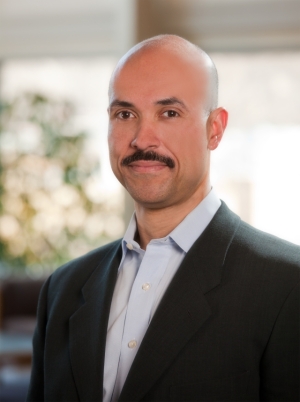Philips y Accenture crean software cerebro-controlado
por
Lauren Dubinsky, Senior Reporter | August 06, 2014

Dr. C. Anthony Jones
Royal Philips and Accenture — a global management consulting technology services and outsourcing company — announced yesterday the development of their proof of concept software that allows a person with no mobility to control their environment with brain commands. The software is used in conjunction with a wearable device that is connected to a tablet.
"This work highlights the potential of digital technologies to transform the way we work and live, which directly aligns with Philips vision for the future of healthcare," Dr. C. Anthony Jones, vice president and chief marketing officer for patient care and monitoring solutions at Philips, wrote to DOTmed News.
Philips, Accenture, Emotiv — a neuroengineering company — and Fjord — a service design consultancy — came together to develop the technology for patients with amyotrophic lateral sclerosis (ALS) and other neurodegenerative diseases. ALS is a disease that 400,000 people suffer with every year and it damages their brain and spinal cord nerve cells, which gradually reduces their voluntary muscle movement.
"As their bodies begin to fail them, their minds are still very much alive," wrote Jones. "Exploring how this proof of concept can potentially help improve the quality of life for ALS patients, or anyone with a neurodegenerative disease, with the potential of gaining some independence, was the focus for Philips, Accenture and Emotiv."
The wearable device and the Emotiv Insight Brainware, which scans EEG brainwaves, are connected to a tablet and the users can make brain commands to control Philips products, including Philips Lifeline Medical Alert Service to call for medical assistance, Philips SmartTV, and Philips Hue personal wireless lighting. The patient can also control those products with eye and voice commands.
The Emotiv technology works by using sensors to tap into the electrical signals that the user's brain produces in real-time in order to detect their thoughts, feelings and expressions. The display on the device then gives the user visual feedback so they can navigate through the application menu and select a product.
Jones believes that wearable technology is going to play an important role in health care in the future. Most of the monitoring solutions today are reserved for very ill patients in the OR and ICU or consumers with devices for basic health and wellness management.
"Over the next 5 years (if not sooner), wearable technology will close the gap between these two extremes, becoming as ubiquitous and unobtrusive as the common bandage," wrote Jones.
He added that when you pair the wearable technology with smartphone technology, it has the potential to provide cost-effective continuous monitoring solutions for populations ranging from the seriously ill to athletes.
Philips and Accenture will continue to collect feedback and explore the software's potential but they can't confirm any commercial development at this time, according to Jones.
|
|
|
You Must Be Logged In To Post A Comment
|
